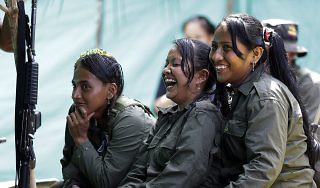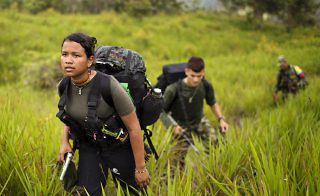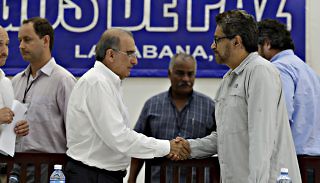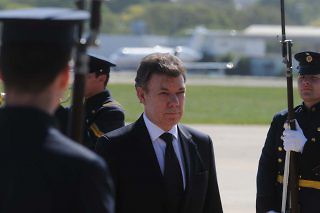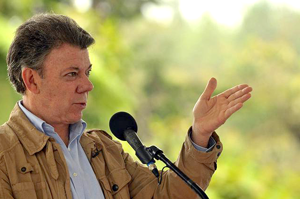There is no other peace process in the world in which victims have occupied such a central role as they have in Colombia.
Author: Virginia M. Bouvier
-
-
While there are hurdles to overcome at home on the mechanisms for endorsing a final accord, the latest pact on that contentious issue appears to satisfy the needs and interests of both parties—as a good agreement should.
-
Many Colombians are hoping that the Pope’s visit to Cuba will offer an opportunity for him to lend concrete support to the peace process.
-
A Gallup poll released on April 29 revealed that the popularity of Colombian President Juan Manuel Santos, who has staked his presidency on achieving a peace deal, dropped from 43% to 29% in the past two months.
-
Just after midnight on November 17, as the government of Colombia and the FARC-EP were preparing to resume their 31st round of conversations in Havana, President Juan Manuel Santos ordered his negotiators not to travel to Havana today as planned, and announced the temporary suspension of the peace talks.On Sunday, November 16, an Army major in […]
-
Prior to the kidnapping of a general on November 17, the peace talks had been advancing, with the parties addressing simultaneously the final two remaining substantive items on the peace agenda—victims and the end of the conflict.
-
With Colombia’s run-off presidential elections approaching, the question is whether an accelerated Havana peace process can give Santos the victory he seeks.

